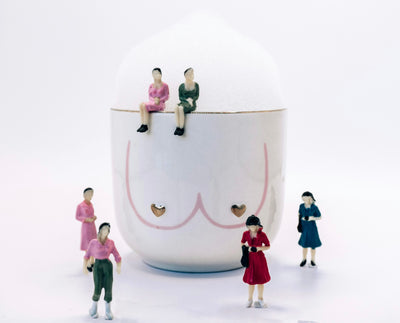Overcoming the Stress of Breastfeeding at Work
In an ideal world, women would receive a lot more support at work while breastfeeding. Unfortunately, evidence is mounting that the current challenges of breastfeeding at work can have negative consequences for mother and baby.
A recent survey of working mothers published on Medium found that new moms give up breastfeeding sooner than they would like; because of the stress of going back to work. One mother responded that, “My milk production went down pretty drastically, and that was really stressful for me.”
Her experience is in line with academic research showing that moms who work, especially full time, breastfeed their babies for less time than those who don’t. Some women who didn’t have a private place to pump resorted to pumping in toilet stalls, resulting in weaning earlier than they wanted. The research also showed that giving women pumping equipment helps them breastfeed longer after they return to work.
Adding lactation support also boosts employee retention by 27% according to the study.
As a physician, I watch so many of my patients struggle with the transition back to work after having a baby -- the lack of sleep, the challenge of balancing career with a newborn, and of course, the demands of breastfeeding, which often requires juggling a work schedule around pumping sessions.
- Stephanie Canale, MD, Lactation Lab Founder
Companies such as Hulu, Zappos and Zillow have taken note that less than two thirds of new moms return to work after childbirth, and are adding resources such as Lactation Lab, Milk Stork or Mamava Pod to support them. Mamava provides private pods for pumping and breastfeeding mothers. Milk Stork enables moms to get their breast milk home when they’re away on business.
Lactation Lab helps working moms, who often see more challenges in milk volume and quality, by finding solutions that enable them to breastfeed their babies for longer.
As a result, new moms don’t have to choose between their career and breastfeeding. This in turn helps businesses keep some of their best and brightest on staff.
Relating Reading:
The Modern Mom: New Challenges, New Solutions
How to Make Pumping on the Job Work for You
The World Health Organization recommends babies consume only breast milk for the first six months of life and ideally up to one year after foods are introduced. And studies show that when mom is less stressed and supported, she is more likely to breastfeed for longer.
If you’re looking for a supportive community of breastfeeding moms, consider joining the Lactation Lounge, a Facebook group dedicated to all things breastfeeding or download the Emily’s Care app for additional support and mental healthcare.






